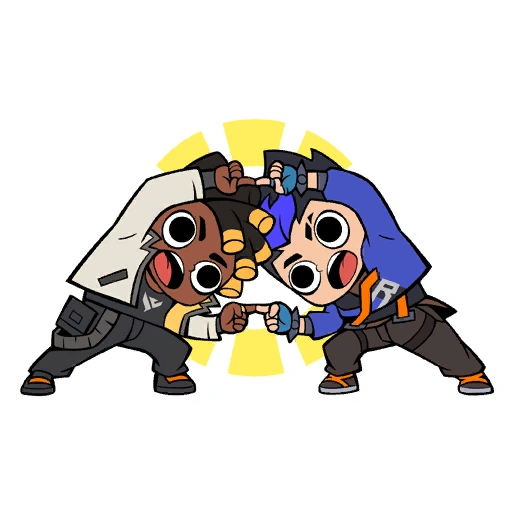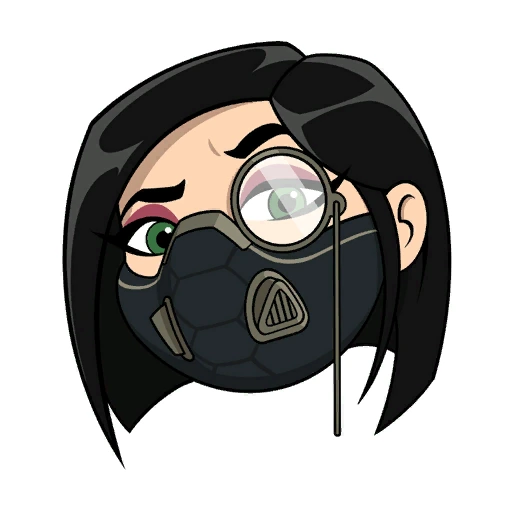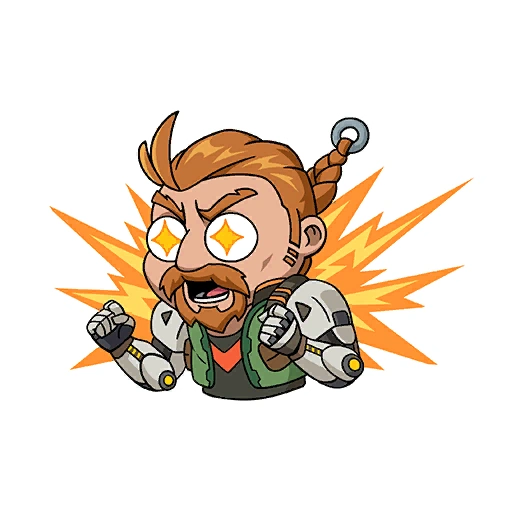Valorant can be difficult; are you thinking too hard, not thinking enough, or are you thinking about the wrong thing? The best way to approach the game is to understand the basics, adapt, and build your game sense so that you can be ready for any situation. These concepts exist before the round, during the round, after the round, and even outside of the game.
The best way to digest these concepts is a simple “If This, Then That” line of thinking. Let’s jump into these adjustments so we can improve our overall game sense and learn to build off of them. The most important adjustments are during the round being played.
Mid-Round Adjustments
If a teammate is fighting, then join them.
Always look for a trade. Not only is trading beneficial for your teamplay, it helps pad your stats so it doesn’t look like you’re doing nothing for the team. Obviously to the trained eye, the scoreboard doesn’t tell the whole story, but to the untrained eye it is constantly used to measure the impact you make on your team. Trading helps your team get or maintain a player advantage mid-round.
If a teammate is shooting, then shoot too.
If your teammate is actively shooting at an enemy, do not wait for them to die to swing; shoot with them! Do not reach for an ability thinking it will help them in their fight. By the time the ability is used, the fight will be over, pull out your gun and assist your teammate with the frag.
If enemies know where you are, then move.
Learn how to reposition constantly. Always move when the enemy has information on you, it will help make you unpredictable. Did you get a kill? Move. Don’t re-peek the same angle. Did you get tagged or spotted by an ability? Move. Did the enemy see you? Move. Always be on the move.
If you successfully did something, then don’t immediately do it again.
Don’t try something twice in a row. The enemy will expect it if it really well the first time. They will be relying on the fact that you’re going to do it again. You need to remember to be unpredictable. If you try it again soon, you’ll create a pattern in which they can follow.
If the enemy repeats actions, then prepare for it.
Recognize the enemy’s patterns as they are trying to recognize yours. Once you identify a pattern you must share the information with your team and react to it. If they lurk, have someone watching the flank or in mid to be ready to fight them. If they constantly “death ball” on Attack, stack the site. If they default, split or play retake based on your agents. Understand the information given to you and react to it.
If you can hear the enemy doing something, then share the information and counter it.
Your team should be playing for information rather than kills. Obtain information on the opposition and kills will come to you, there is no need to make it harder on yourself and your team. The more information a team gathers, the more frequent and easier your team’s kills will get. Use abilities and sound cues to get more information on your opponents than they have on you.
If an enemy gives you map space, then take it.
If an enemy is pressuring an area of the map and devoting a majority of agents and their abilities to this area, then most likely, the rest of the map is free to use. Even if the space is less than ideal, it can be used to pinch enemies and cause pressure for the attacking force. Pinching the opposition using this free space allows pressure to be alleviated on the agents holding the line, while that pressure gets transferred to the aggressors.
Here on Split, we see the Attackers (in Red) aggressively attacking B Site. This allows for a lot of free space behind them. If Reyna and Skye use this space, the Attackers will be forced to give them attention, alleviating pressure from the Viper, Cypher, and Jett. Pinching the opposition will give your team a better chance at winning the round. Not using this space, will look like Skye and Viper rotating through their spawn and compacting Defender Side Spawn.
Pre and Post Round Adjustments
If you have information on their Ultimates and armory options, then use it.
Look at the scoreboard, not to look at your K/D/A, but to look at what the enemy is working with. The scoreboard gives you free updated information to use against the enemy. The scoreboard will tell you who is fragging out, so you can probably isolate or avoid that player. The scoreboard will tell you what weapons they could be using; will they have enough money for rifles, SMGs, or pistols? Will they be short on money for abilities? The scoreboard will tell you how they will spend their money. The scoreboard will tell you who will have an Ultimate. Will they play for post-plant with a Brimstone Ultimate? Will Jett be saving and using knives? The scoreboard will tell you.
If you are dead, then actively watch the round unfold.
The key to this is actively watching. A lot of people like an active listener, they’re engaged with the conversation, ask questions, and seem genuinely interested in what is being discussed. You must do the same with watching your teammates. Do not go on your phone or browse the internet. Watching the round is free information being given to you. You can make call outs or catch a pattern to share with your team. You can learn from your teammate’s successes or failures. Pay attention to the round even if you are no longer a part of it.
Mental Adjustments
If you had a bad round, then wipe it out of your memory.
Everybody has bad gunfights, rounds, matches, and days. Forget about the past and don’t let it affect the present or your future. If you whiff, laugh it off and then forget about why you were laughing because it didn’t happen.
If you had a great round, then hype yourself up.
Carry that momentum of hype plays into the next round. Verbalize your greatness and say it with your chest. “I am better than them.” “I am so much better.” Verbalizing it and telling it to yourself will force you to buy into greatness. Remember, lift yourself up without putting others down. This is you and your team against the opposition. Don’t rely on others hyping you up, hype yourself up.
Outside of Game Adjustments
If you identify mistakes or successful plays, then learn from it.
If you really want to get better at the game, review your gameplay. Unfortunately, Valorant doesn’t have a built-in replay system, but recording your matches and rewatching them allows you to focus on everything that is not aiming at a head and clicking. You will be much more observant on your positioning, your teammate’s positioning, your mistakes, and what you do well. VOD reviews can also correct you if you thought somebody else was at fault. Maybe it was actually your fault, or maybe there was miscommunication. The VOD never lies.
Conclusion
Identifying the scenarios in which adjustments are needed buffs your game sense over time. Your game IQ is not going to jump in a matter of hours, but slowly building upon “If this, then that’s” will allow you to identify situations and adapt to them much more quickly than before. Game sense wins games when your aiming ability is lackluster. Use the information given to you, build, adapt, and execute.





